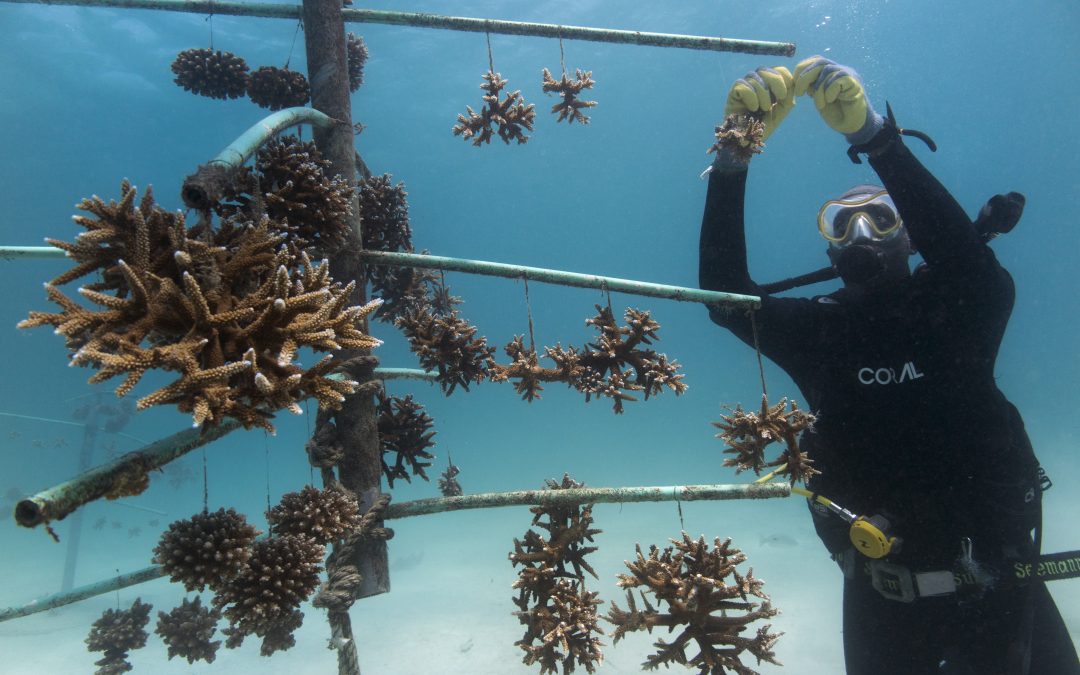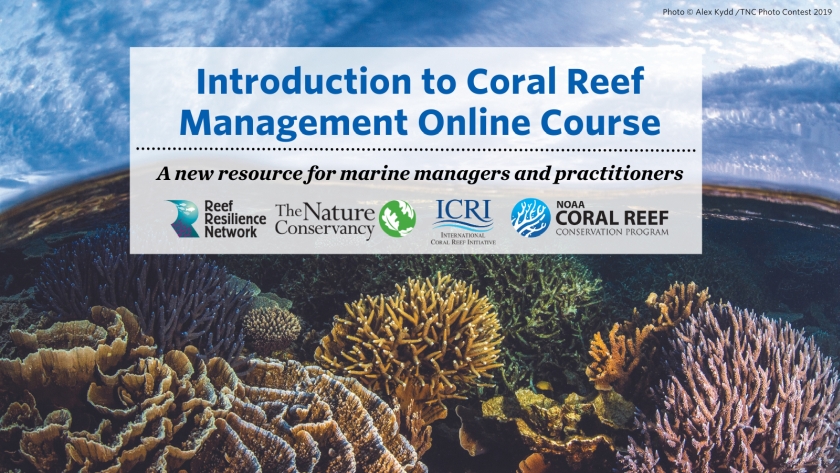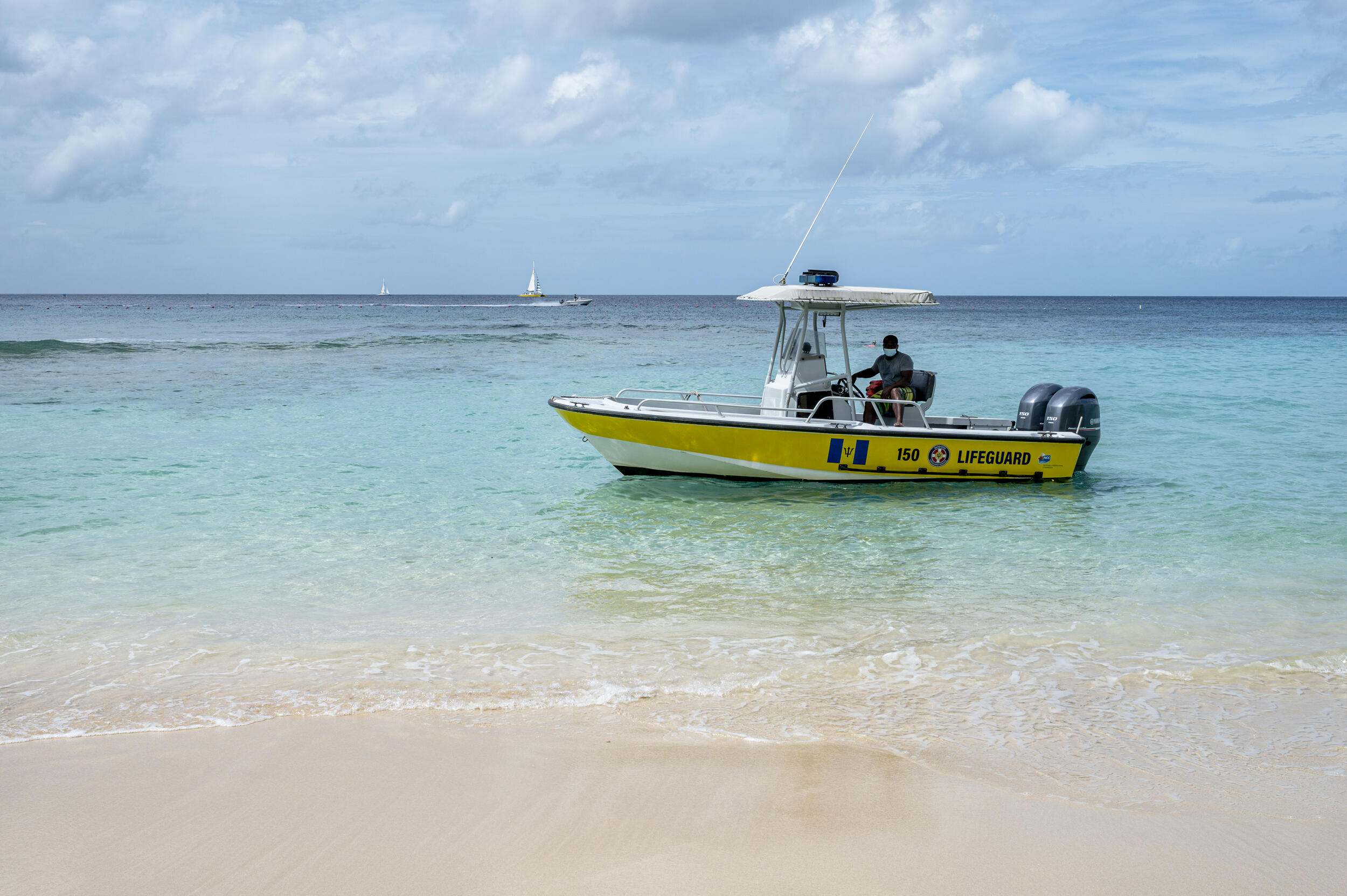Six coral reef restoration case studies have been added to the Reef Resilience Network case study database. These case studies – developed in collaboration with the United Nations Environment Programme (UNEP) and the International Coral Reef Initiative (ICRI) – focus on different aspects of restoration and are from areas all over the world including:
-
- Guadeloupe – where a new eco-designed mooring system was put in place to reduce the impacts of boat anchors to coral reef and seagrass areas while also enhancing coral colonization and associated fauna
- Florida – where the project Mission: Iconic Reefs was developed through extensive planning with stakeholders outlining large-scale restoration across the reef tract
- Japan – where large-scale restoration and research was trialed in three villages over seven years
- Israel – where long-term restoration has been conducted using eight different species of corals
- South Pacific – where coral-focused climate change adaptation measures were nested within existing coral reef management strategies such as MPAs, capacity building, the establishment of coral nurseries, and restoration sites composed of bleaching resistant corals
- Australia – where the Coral Nurture Program was developed to use low-cost approaches and work with the tourism industry as a major partner to conduct restoration
You can also find these case studies, and other reef restoration resources, in the new UNEP report: Coral Reef Restoration as a Strategy to Improve Ecosystem Services: A Guide to Coral Restoration Methods.



